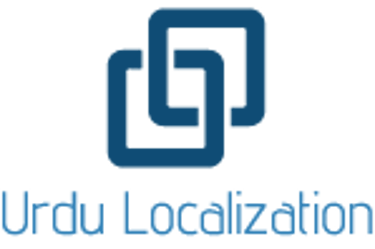
Urdu Translation for Online Education and E-Learning Platforms: Expanding Knowledge Access
2 min read

E-learning has become a cornerstone of modern education, from virtual classrooms to skill-based training programs. But for Urdu-speaking learners, the effectiveness of these platforms depends entirely on how accessible and understandable the content is. Accurate Urdu translation services transform online education into an inclusive experience where students can fully engage with lessons, tests, and interactive features.
Making Complex Subjects Understandable
Science, mathematics, and technology-based subjects often involve highly technical terms. Translating these concepts into Urdu requires expertise that goes beyond word-for-word conversion. Professional Urdu translators with subject-matter knowledge ensure that explanations remain precise, accurate, and clear. This allows learners to grasp difficult concepts without being lost in awkward phrasing or mistranslation.
Localized Interfaces for Better Learning
An e-learning platform is more than just content—it’s also the interface students interact with daily. Menus, dashboards, and navigation must be fully localized for Urdu’s right-to-left (RTL) script. Without careful adaptation, students may struggle with misplaced text or confusing layouts. A well-localized platform makes navigation smooth, allowing learners to focus entirely on education rather than technical hurdles.
Building Confidence Among Limited English-Speaking Learners
Many learners in Pakistan and Urdu-speaking communities abroad struggle with limited English proficiency. If instructions, tests, and feedback remain in English, they may feel excluded or discouraged. By providing fully translated content, educational apps and platforms build confidence, making students more motivated to participate and succeed.
The Role of Subtitling and Voice-Overs in Education
Video lessons are a major part of e-learning. Urdu voice-over services and subtitling ensure that lectures are accessible to students who prefer listening in their native language. A science experiment explained in Urdu or a math lecture with clear Urdu subtitles makes the learning process much smoother and more inclusive.
Consistency Across Courses and Materials
Educational platforms often provide multiple modules, ranging from beginner to advanced levels. Consistent terminology is essential to ensure that students are not confused by shifting vocabulary. Urdu proofreading and editing teams maintain uniformity in translated terms across all levels, making learning more coherent and structured.
Cultural Relevance in Educational Content
Examples, case studies, and teaching styles differ across regions. Adapting educational materials for Urdu-speaking learners means choosing references and metaphors that align with their cultural context. A story or problem set that uses local names, places, or familiar scenarios makes lessons more relatable and easier to remember.
Confidentiality in Academic Localization
Educational platforms often manage sensitive data such as student records, test scores, and certificates. Confidential Urdu translation services ensure that this information remains private while still being accessible to Urdu-speaking learners. Trust is critical in education, and accurate, secure translation strengthens that trust.
By investing in Urdu translation for online education and e-learning platforms, companies and institutions unlock new opportunities for millions of learners worldwide. It is not only about translating words but about empowering individuals, expanding knowledge, and breaking down barriers to education. For Urdu-speaking students, language is the key that opens the door to lifelong learning.
